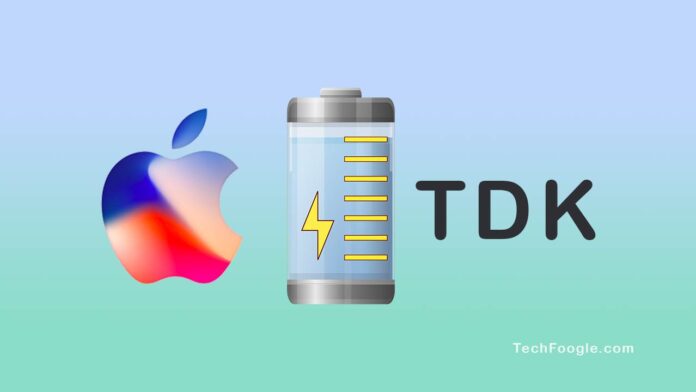In a significant development for the Indian manufacturing sector, Japanese electronic components producer TDK Corp has announced its plans to manufacture lithium-ion (Li-Ion) battery cells for Apple iPhone models in India. This move is part of Apple’s broader strategy to position India as a crucial growth engine and diversify its manufacturing beyond China.
Table of Contents
TDK’s Expansion in India
TDK’s decision to establish a manufacturing site in Haryana, India’s northernmost state, marks a substantial regional investment. Deputy Minister for Information Technology, Rajeev Chandrasekhar, shared the news on social networking site X, emphasizing the creation of thousands of new jobs. This development not only strengthens TDK’s presence in India but also highlights the country’s attractiveness for high-tech manufacturing.
The collaboration with Apple’s Li-Ion battery manufacturer, Sunwoda Electronics, adds another layer to this strategic move. The facility in Haryana will supply cells to Sunwoda Electronics, contributing to the production of Li-Ion batteries for Apple’s iPhones.
Apple’s Shift to India
Apple’s interest in India as a manufacturing hub began in 2017, with the initiation of iPhone production by Wistron and, later, Foxconn. The company has steadily increased its network of suppliers nationwide, reflecting its commitment to the Indian market. The move to manufacture Li-Ion battery cells locally aligns with Apple’s long-term vision for India as a pivotal product market.
Foxconn’s Expansion Plans
In tandem with TDK’s announcement, an Apple supplier, Foxconn, expressed plans to quadruple its staff and investment in India by the next year. Foxconn’s representative in India, V Lee, stated ambitious goals for doubling employment, foreign direct investment (FDI), and business size. The state of Karnataka’s announcement revealed significant investments by Foxconn, further solidifying India’s position in Apple’s global supply chain.
Challenges and Opportunities
While these developments present exciting opportunities, challenges are inevitable. TDK, Apple, and other manufacturers must navigate regulatory, logistical, and operational complexities. However, the growing Indian market and the government’s initiatives to ease the business process provide a favorable environment for such investments.
The collaboration between Foxconn and Applied Materials in chip-making equipment production adds a technological dimension to India’s manufacturing landscape. It enhances India’s capabilities and aligns with global trends in semiconductor manufacturing.
Conclusion
In conclusion, TDK’s decision to manufacture iPhone Li-Ion battery cells in India signifies a major stride in the country’s role as a manufacturing powerhouse. Apple’s continued investment and partnerships with suppliers like TDK and Foxconn underscore India’s importance in the global electronics supply chain. As the Indian government facilitates such endeavors, the future holds promising prospects for manufacturers and the Indian economy.













